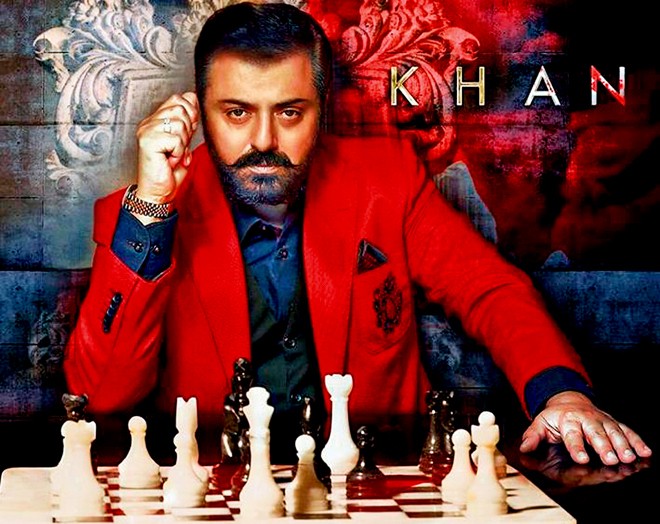

TV talk
The recently held Emmy Awards stood out for appreciating diversity on various levels. While people of colour, including Riz Ahmed (The Night Of), picked up trophies, female centric TV series such as Big Little Lies and The Handmaid’s Tale won multiple awards and remained the highlight of the night. Not just that but other television series that centre upon a range of themes were also honoured with at least one trophy (Atlanta, The Night Of, Veep) each.
If we look at American television, it has a place for all sorts of subjects, from domestic violence (Big Little Lies) to politics (Veep) to science fiction (Westworld) to reality-suspense thriller (The Night Of) and much more. But if we analyze drama serials that are dominating our TV screens for the last couple of years, life appears to be stuck in relationships. There is lack of diversity not only in terms of content but characters as well. Local television has no place for crime stories or medical dramas or action thrillers but relies heavily, rather obsesses with domestic violence, women as victims, relationships and saas-bahu disputes. They are fixated with love tales, marriage and extramarital affairs, instilling the belief that there is nothing more to a woman’s life than dealing with the men in it. The progression, though little, that we see around has no place in these dramas that only endorse victimization of women and the fact that they are dependent on their male counterparts.
While that may be true to a large extent given that we live in a patriarchal society, there are women around who are leading an independent yet content life. Married, unmarried or single moms, a lot of them do have a career to focus on and take care of the family at the same time. There is much more to their lives than getting into a relationship or cry over their fate for not being able to find the perfect man for themselves. But what we see on our television is the exact opposite. Even top rated TV plays follow the same trend and when producers try to experiment with unusual plots, most of them fail on the rating card.
A period drama called Mor Mahal, directed by Sarmad Khoosat just last year, created a lot of hype initially but didn’t manage to make a mark despite an all-star ensemble cast including Meesha Shafi, Umair Jaswal and Hina Bayat; Mor Mahal had strong headed women at its core. Noman Ijaz-starrer ongoing political drama, Khan that aimed to break away from clichéd plotlines, has also lost track after the first few episodes and is no more than a never-ending tale of revenge.
A recent trend that has been observed on television is attaching a social cause to the production. While Udaari that focused on the issue of child sexual abuse was a huge success, none of the social dramas after this achieved the same impact. Ayesha Khan-starrer Khuda Mera Bhi Hai that followed the story of a transgender lacked the sensitivity and depth required to deal with the subject with some technical flaws here and there.
This year’s much anticipated drama, Sammi that starred Mawra Hocane in a lead role, wasn’t substantial either. With vani (forced marriage) as its central theme, the production didn’t create any awareness on the subject and seemed to have lost the purpose towards the end.
While we appreciate that some brave productions think out of the box, tap into different genres and experiment with new ideas, it is unfortunate that these projects fail to make a mark. Either they aren’t executed well or the plot weakens somewhere in the middle. New drama serial Rangreza that features Sajal Aly and Noman Ijaz offered a refreshing experience as it introduced a character as progressive as Sassi (played by Sajal) while highlighting male hypocrisy at the same time. Though it was fast paced and intriguing in the beginning, the story hasn’t moved forward for the last couple of episodes.
On the other hand, Saba Qamar’s Baaghi that is inspired from the life of Qandeel Baloch is still going strong after nine episodes. Though that also takes into account women-centric issues, it has a progressive approach with small yet powerful messages to deliver. Aside from this, Yakeen Ka Safar that features Ahad Raza Mir and Sajal Aly as doctors, has a medical angle to it and is more realistic than any other TV serial on air these days. It views people as professionals while tapping into their personal lives as well, making it more relatable.
Though these TV plays break away from hackneyed plots and characters, they are very few and often go unnoticed. It is time more and more producers and/or channels tried their hand at unique subject matter without worrying about numbers. There are a number of TV plays that are currently on air on multiple channels these days. If one script out of every 10 projects isn’t governed by numbers but substance, with a particular focus on content, it can change the entire perspective on television that has been under severe criticism for promoting regression.